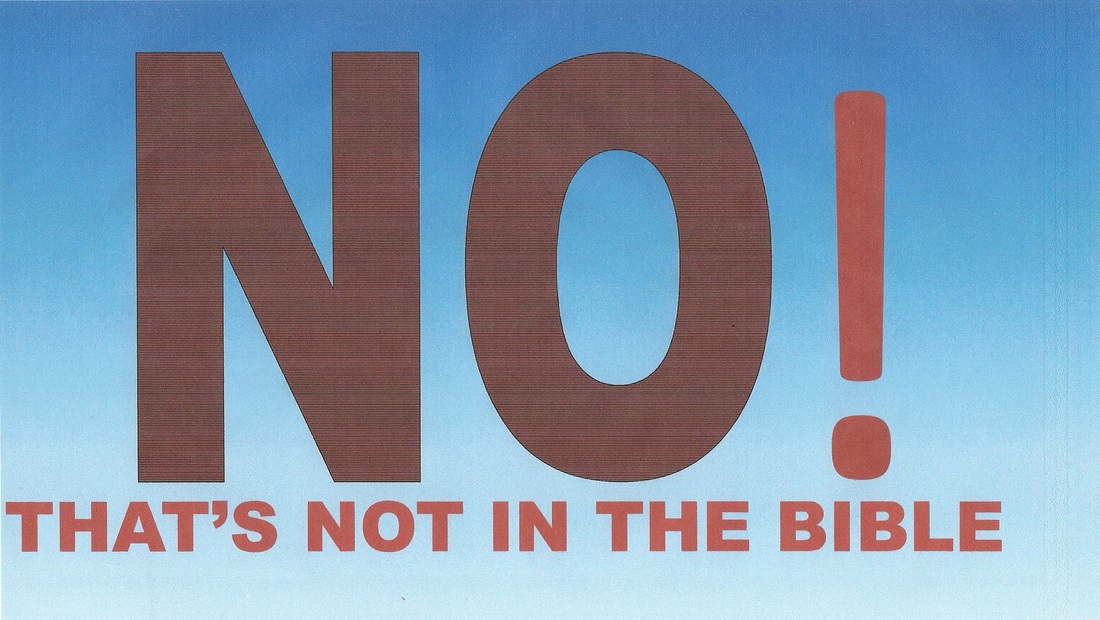
The phrase is probably from a Babylonian and Hebrew proverb. It’s first appearance in English was a modification of the proverb in an essay written by Sir Francis Bacon in 1605 to “Cleanness of body was ever deemed to proceed from a due reverence to God.” In a sermon by John Wesley titled “On Dress” printed in 1769 the phrase is rendered “Slovenliness is no part of religion...cleanliness is indeed next to godliness.”
So if the phrase “cleanliness is next to godliness” is not in the Bible why would a famous preacher like John Wesley use it in a sermon? I didn’t say he said the phrase came for the bible, he just used it in a sermon. The bible does talk a lot about the importance of being physically, ceremonially, and spiritually clean. To be unclean, according to the Old Testament books Leviticus and Numbers was to be defiled. The regulations and laws on cleanliness and purity were primarily designed to teach lessons about the holiness of God and the corruption of man. God's presence in the midst of his people, the Hebrews, could not be taken for granted and was to be carefully safeguarded and regulated.
Leviticus 26:11-12 (NLT)11 I will live among you, and I will not despise you.12 I will walk among you; I will be your God, and you will be my people.
Exodus 33:14 (NLT)14 The LORD replied, “I will personally go with you, Moses, and I will give you rest—everything will be fine for you.”
Because of sin human beings aren’t automatically qualified to come into God’s presence. Until Jesus came to the earth and paid the price for sin human beings had to prepare ourselves ceremonially and morally before they could approach God. Uncleanness, just like sin, can manifest itself both inside and outside so the Hebrews had to be diligent in order to avoid uncleanness. .
In addition to emphasizing the holiness of God the regulations on cleanliness would be a clear sign of separation of God’s chosen people from the surrounding nations.
Leviticus 20:26 (NLT) You must be holy because I, the LORD, am holy. I have set you apart from all other people to be my very own.
When God gave the instructions about clean and unclean animals, how to deal with leprosy, mold in clothing and in houses, relationships between parents, neighbors, foreigners, how to worship, all the regulations we read about in Exodus, Leviticus, Numbers, and Deuteronomy, including the Ten Commandments, He was instructing them to be different from the other nations in their lifestyles.
Many of the rules, we recognize now, were also very practical, and given to keep the Hebrews from getting sick. For example;
- God told the Jews not to eat pork.
- He told them to not touch dead bodies. Numbers 19:11 (NLT)11 “All those who touch a dead human body will be ceremonially unclean for seven days.
Today we know that infectious diseases can sometimes spread from both animal and human corpses.
- There were regulations on personal hygiene.
Leviticus 14:1-4 (NLT)1 And the LORD said to Moses,2 “The following instructions are for those seeking ceremonial purification from a skin disease. Those who have been healed must be brought to the priest,3 who will examine them at a place outside the camp. If the priest finds that someone has been healed of a serious skin disease,4 he will perform a purification ceremony, using two live birds that are ceremonially clean, a stick of cedar, some scarlet yarn, and a hyssop branch.
- He even gave them the formula for soap. In Leviticus 19:1-22 He gives instructions that included ashes from a red heifer, which would have included the animal fat and ashes from the wood used to burn it, add water to the mixture. If you remember you high school chemistry you know that animal fat, wood ashes and water mixed together create soap.
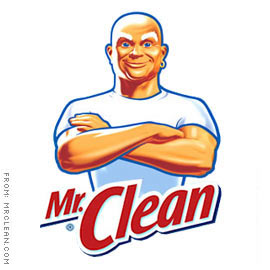
The Hebrews, because of God’s emphasis on cleanliness became maybe the most health-conscious people in history. The problem was that they missed the point. They became more concerned with outward purity than the real reason that God gave the rules which were to point to His holiness and the fact that He was in their midsts. The regulations became empty rituals and substitutes for a real relationship with God. By the time of Jesus things were added with details so trivial that it bordered on the ridiculous.
Mark 7:1-7 (NLT)1 One day some Pharisees and teachers of religious law arrived from Jerusalem to see Jesus.2 They noticed that some of his disciples failed to follow the Jewish ritual of hand washing before eating.3 (The Jews, especially the Pharisees, do not eat until they have poured water over their cupped hands, as required by their ancient traditions.4 Similarly, they don’t eat anything from the market until they immerse their hands in water. This is but one of many traditions they have clung to—such as their ceremonial washing of cups, pitchers, and kettles.)5 So the Pharisees and teachers of religious law asked him, “Why don’t your disciples follow our age-old tradition? They eat without first performing the hand-washing ceremony.”6 Jesus replied, “You hypocrites! Isaiah was right when he prophesied about you, for he wrote, ‘These people honor me with their lips, but their hearts are far from me.7 Their worship is a farce, for they teach man-made ideas as commands from God.’
Jesus’ comment addressed God’s initial purpose in giving the Hebrews His regulations on purity and cleanliness which was a cleansing of His people’s lives which set them apart from other nations. He told the Pharisees that they were honoring the traditions of cleanliness above the worship of God. He told them that it was not what was on the outside that made a person clean or unclean but what was inside that person.
Mark 7:14-15 (NLT)14 Then Jesus called to the crowd to come and hear. “All of you listen,” he said, “and try to understand.15 It’s not what goes into your body that defiles you; you are defiled by what comes from your heart.”
The real problem of cleanliness was not dirty hands but a dirty heart. In scripture the heart is the center for both physical and emotional-intellectual-moral activities - Baker’s Evangelical Dictionary of Biblical Theology.
Mark 7:21-23 (NLT)21 For from within, out of a person’s heart, come evil thoughts, sexual immorality, theft, murder,22 adultery, greed, wickedness, deceit, lustful desires, envy, slander, pride, and foolishness.23 All these vile things come from within; they are what defile you.”
The Pharisees didn’t understand that every person has the stain of sin on and in them and that no amount of soap and water will remove that stain.
Jeremiah 2:22 (NLT) No amount of soap or lye can make you clean. I still see the stain of your guilt. I, the Sovereign LORD, have spoken!
Jesus told us that they need to clean up what’s on the inside. If the inside is clean the outside will be clean too.
Matthew 23:25-26 (NLT)25 “What sorrow awaits you teachers of religious law and you Pharisees. Hypocrites! For you are so careful to clean the outside of the cup and the dish, but inside you are filthy—full of greed and self-indulgence!26 You blind Pharisee! First wash the inside of the cup and the dish, and then the outside will become clean, too.
The only thing that will remove the stain of sin from the inside is, blood. That doesn’t sound possible does it? To remove a stain you must clean it with something else that stain? Yes!
The stain that makes us unclean is sin. In the Old Testament God gave the Hebrews regulations on sacrificing bulls, goats and lambs, and using the blood of those animals in atonement for their sins. When they did this they were ceremonially clean but only until the next time they sinned then they had to bring another sacrifice. That was the Old Covenant that God had with His people. Jesus established a New Covenant,with his blood. Under this New Covenant those who believe in Him and fall under the New Covenant, are cleansed for all time by His blood.
Hebrews 9:14-15 (NLT)14 Just think how much more the blood of Christ will purify our consciences from sinful deeds so that we can worship the living God. For by the power of the eternal Spirit, Christ offered himself to God as a perfect sacrifice for our sins.15 That is why he is the one who mediates a new covenant between God and people, so that all who are called can receive the eternal inheritance God has promised them. For Christ died to set them free from the penalty of the sins they had committed under that first covenant.
When we are washed and cleansed by the blood of Jesus we are made clean from the inside out. We have a brand new heart and we are completely new.
1 John 1:7 (NLT) But if we are living in the light, as God is in the light, then we have fellowship with each other, and the blood of Jesus, his Son, cleanses us from all sin.
2 Corinthians 5:16-17 (NLT)16 So we have stopped evaluating others from a human point of view. At one time we thought of Christ merely from a human point of view. How differently we know him now!17 This means that anyone who belongs to Christ has become a new person. The old life is gone; a new life has begun!
No, “cleanliness is next to godliness” is not in the Bible. However the Bible does tell us that a clean heart is the result of having God in your life. That’s very important because the Bible tells us that if we are not clean we will not be able to remain in God’s presence. Remember when your parents told you that you couldn’t eat unless you washed your hands? It’s the same way in approaching God. You must be clean.
Psalm 24:3-4 (NLT)3 Who may climb the mountain of the LORD? Who may stand in his holy place?4 Only those whose hands and hearts are pure, who do not worship idols and never tell lies.
The Greek word translated “godliness” in the New Testament is eusebeian and it means “holiness,”. To be holy is to be set apart for God. (See Holy, Holy, Holy) , and if you aren’t you can’t see, or be in the presence of God.
Hebrews 12:14 (NLT) Work at living in peace with everyone, and work at living a holy life, for those who are not holy will not see the Lord.
It’s impossible to become holy by obeying rituals and traditions. The difference between God and us is that He is inherently holy while we, on the other hand, only become holy when we have a relationship with Christ, through His shed blood.
None of us will reach sinless perfection in this world, that won’t happen until Jesus returns, but God has made provision for our sin and cleansing both before and after we were saved.
1 John 1:9 (NLT) But if we confess our sins to him, he is faithful and just to forgive us our sins and to cleanse us from all wickedness.
God’s ultimate desire for His people is that we be holy which is being conformed into the image of His Son.
Romans 8:28-29 (NLT)28 And we know that God causes everything to work together for the good of those who love God and are called according to his purpose for them.29 For God knew his people in advance, and he chose them to become like his Son, so that his Son would be the firstborn among many brothers and sisters.
God wants to cleanse you from the inside out. If you want that cleansing all you have to do is ask Him for it.
Psalm 51:10 (NLT) Create in me a clean heart, O God. Renew a loyal spirit within me.
Then accept His cleansing through blood of His Son Jesus Christ.
Romans 10:9-10 (NLT)9 If you confess with your mouth that Jesus is Lord and believe in your heart that God raised him from the dead, you will be saved.10 For it is by believing in your heart that you are made right with God, and it is by confessing with your mouth that you are saved.
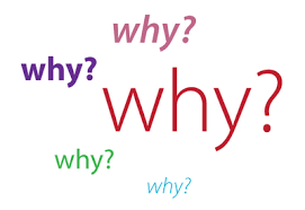

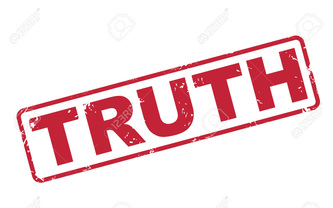
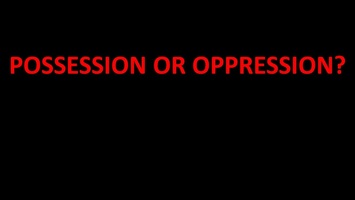
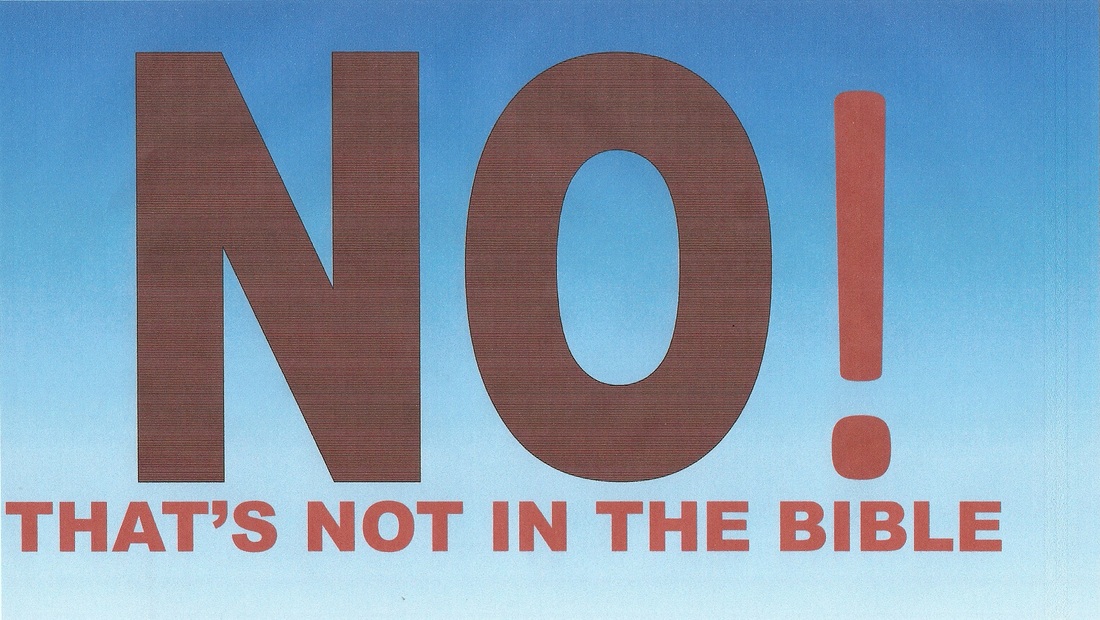

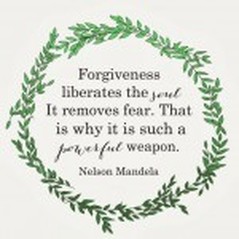

 RSS Feed
RSS Feed